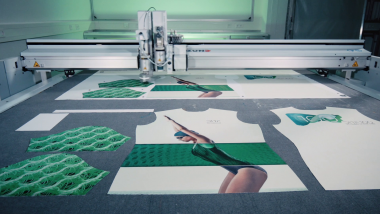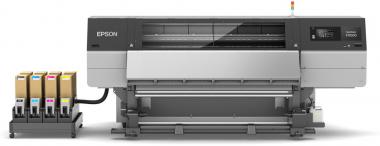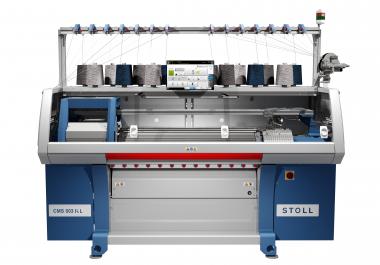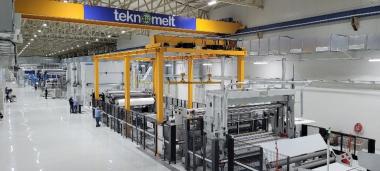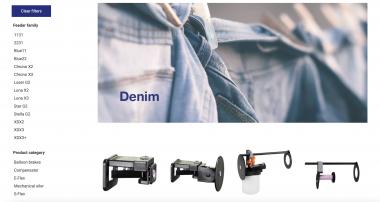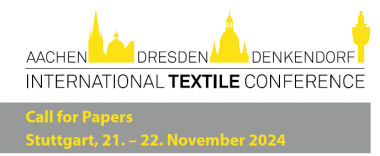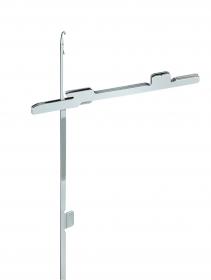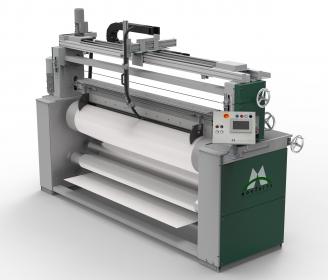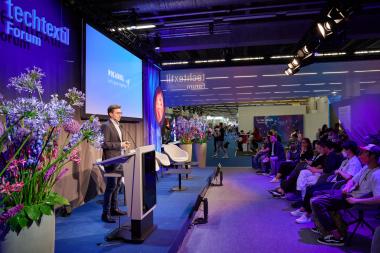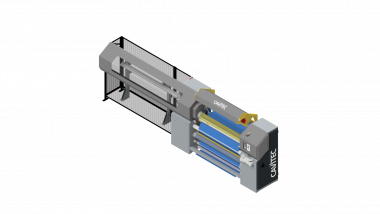DITF: Digital Textile Micro Factory auf der drupa
Gemeinsam mit internationalen Partnern aus Industrie und Forschung präsentieren die DITF auf dem touchpoint textile der drupa (28. Mai bis 7. Juni 2024) die Digital Textile Micro Factory. Vorgestellt wird eine voll vernetzte On-Demand Produktion von sportiven Produkten – vom virtuellen Design bis zum fertigen Produkt.
Ein Highlight ist der Materialpuffer zwischen Drucker und Cutter, der den fortlaufenden Prozess des Druckens mit dem schrittweise erfolgenden Zuschnitt verknüpft. Am Ende der Fertigungskette sortiert ein Roboterarm alle zu einem Produkt gehörenden Zuschnitte wie zum Beispiel Vorder- und Rückenteil sowie Ärmel und Kragenblende eines T-Shirts in die entsprechenden Boxen. Handanlegen ist nur noch in Ausnahmefällen nötig.
Digital vernetzte Design- und Produktionsketten machen es in Zukunft möglich, schnell und gezielt auf Kundenwünsche und Trends zu reagieren. Dieses Vorgehen schont Umwelt und Ressourcen: Statt Massenware für den Müll herzustellen, sind die Produkte passgenau auf den Bedarf abgestimmt. Auf der Messe wird auch der Carbon Footprint von der virtuellen Entwicklung bis zum fertigen Produkt ermittelt und anhand eines Modells erklärt.
Deutsche Institute für Textil- und Faserforschung (DITF)


